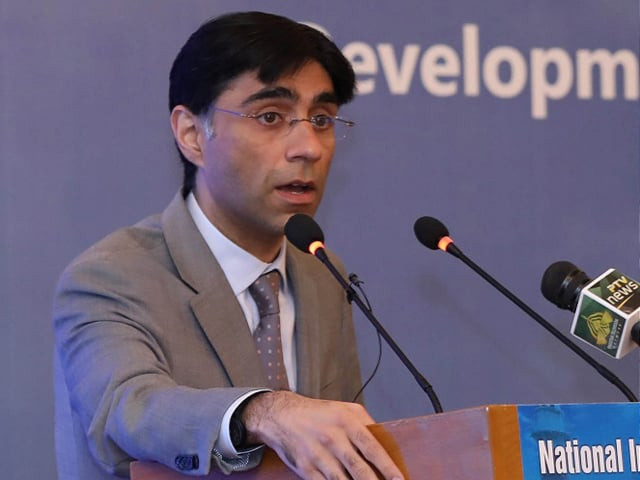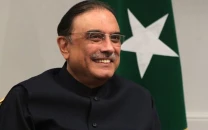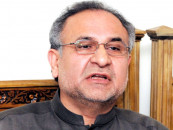India funded, supported attacks on CPEC: NSA Moeed
Moeed says CPEC beneficial for all participants

National Security Adviser (NSA) Moeed Yusuf on Thursday said the safety of foreigners in the country is Pakistan’s responsibility, and concerns of Chinese workers and engineers working on the China-Pakistan Economic Corridor (CPEC) are taken seriously.
The NSA’s remarks came in an interview with the Beijing Review where he mentioned that some countries and their proxy actors do not want the CPEC to succeed as they see the Pakistan-China partnership as a “threat”.
Moeed acknowledged that there have been a number of attacks on the CPEC projects, highlighting that India supported and funded them through anti-Pakistan militant organisations operating from third countries.
Read: NSC approves Pakistan's first-ever national security policy
“Unfortunately, our enemies will continue to seek ways to target us,” he added.
However, the NSA stated that regardless of these attacks, there is clear evidence that the Pakistan-China relationship is still going strong as the two countries came out “stronger and further strengthened security protocols”.
“All inimical forces working at the behest of external powers to undermine the CPEC will be defeated,” said Moeed, adding that Pakistan now has a mechanism to ensure the security of every Chinese citizen in the country.
He emphasised that the full potential of the CPEC will only be realised when there is peace in the region.
‘CPEC beneficial for all’
Moeed said that the CPEC is beneficial for both China and Pakistan as well as everyone who participates in it.
“Since the start of the project in 2014, significant progress has been made on the ground. So far, projects with a combined installed capacity of more than nine gigawatts have been completed and work on other energy projects is continuing at a pace,” he added.
According to the NSA, roads have also been built throughout the country to streamline internal connectivity.
“We are entering the second phase, which is critical for industrialisation in the country and connectivity between China, Pakistan and the rest of the world,” he stated, adding that this phase will involve investment in a range of sectors, including agriculture and science and technology.
The NSA further emphasised that the projects will contribute to internal physical connectivity, job creation, agricultural modernisation and industrial expansion in Pakistan.
“We envisage CPEC to be a springboard for transforming Pakistan into a regional connectivity and trade hub,” said Moeed.
He claimed that for China, Pakistan offers an attractive investment destination.
'Pakistan not interested in camp politics'
Responding to a question, the NSA maintained that Pakistan neither believes in camp politics nor wants to be pushed in that direction.
“China has always counselled us to have good relations with everyone, and we have always maintained that Islamabad’s relations with Beijing are not exclusive,” he said.
He said that Pakistan’s good relations with China were based on shared interests and mutual respect, and do not target any other country.
Read More: Govt bringing reforms to British-era laws: PM Imran
“We desire good relations with the US, going beyond just a narrow security lens. The officials of both countries are talking on key issues in our bilateral relationship,” he added.
The NSA reiterated that Pakistan wanted to safeguard its national interests by having good ties with all major powers.
On Afghanistan, Moeed said that it was critical for Pakistan and China to continue working together to stabilise the war-torn country and prevent it from becoming a safe haven for cross-border terrorism.
“We are also keen to implement our joint vision of extending the CPEC to benefit Afghanistan’s economy and its people,” he added.




1724319076-0/Untitled-design-(5)1724319076-0-208x130.webp)














COMMENTS
Comments are moderated and generally will be posted if they are on-topic and not abusive.
For more information, please see our Comments FAQ